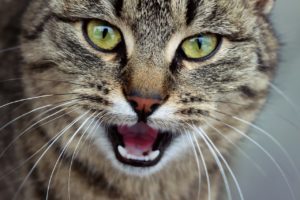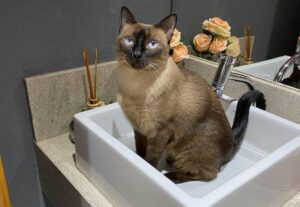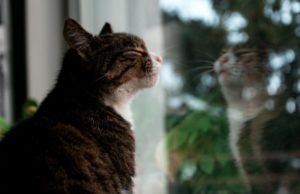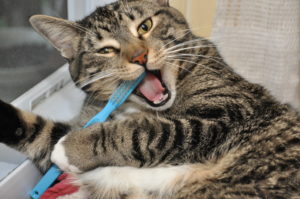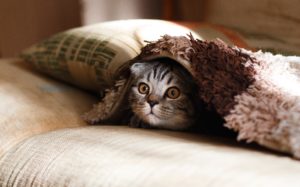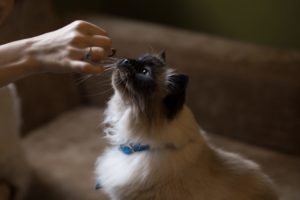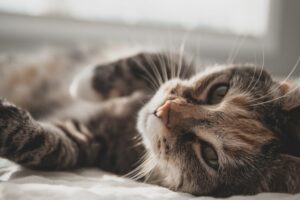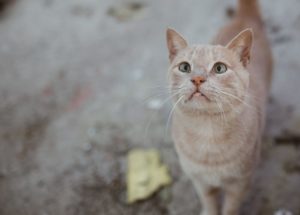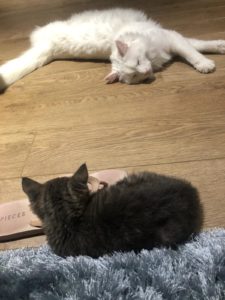 There are a lot of factors to consider when picking up a new pet. They are going to be a major part of your family, so it’s important to make the right choice. When you’re buying a cat, the first question you’re faced with is do you want a pure breed or mixed breed cat? Each type has its benefits and there is a degree of personal preference, if you’re unsure of which is right for you then there are some characteristics of each to consider.
There are a lot of factors to consider when picking up a new pet. They are going to be a major part of your family, so it’s important to make the right choice. When you’re buying a cat, the first question you’re faced with is do you want a pure breed or mixed breed cat? Each type has its benefits and there is a degree of personal preference, if you’re unsure of which is right for you then there are some characteristics of each to consider.
A mixed breed cat is a cat without papers or any way of confirming what particular breed they might be. These cats are usually a complicated mix rather than a cross between two specific breeds. These types of cats can have an incredibly complicated lineage, this makes referring to them simply as mixed breed cats a lot simpler. There are still quite a few variations within these mixed breeds. If you’re trying to decide between pure breed or mixed breed cats, mixed breeds are definitely a lot simpler.
Pure breed cats are felines who have been bred to match specific criteria, this is usually decided by the body that certifies cat breeds in your country. This is called a breed standard. These standards will vary but there are minimum requirements that a cat must meet to be considered a member of that specific breed. Pure breed cats can vary in colour and size, but largely they will conform to the appearance set by the requirements of the breed.
Is a Pure Breed or Mixed Breed Cat Healthier?
The health of a cat is something to consider when deciding between pure breed or mixed breed cats. Specific types of pure breed cats are more predisposed to certain genetic health issues. This is a result of their breed carrying those traits. They are very likely to inherit them due to the small mating pool these cats come from. Mixed breed cats are usually a bit more resilient. This doesn’t mean they won’t have any genetic inclination towards health concerns, but they aren’t part of a breed that specifically carries those conditions.
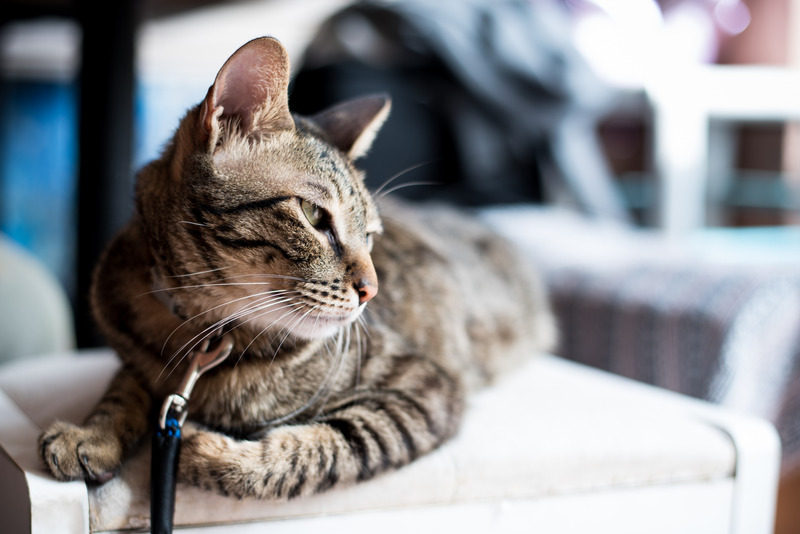
An example would be Norwegian Forest cats. These cats are predisposed to heart problems. It’s an unfortunate fact that most cats of this breed will have the issue present itself at some point in their life. However, since the owner is aware of this likelihood then the problem can be kept in mind over the cat’s lifespan. Owners can keep a close eye on any potential heart problems and make sure it isn’t an issue for their cat. These issues vary breed to breed. If you want to get a pure breed cat, you should definitely research the specific health concerns of that breed.
With mixed breed cats, you largely don’t know what you’re getting into with health conditions. Most mixed breeds won’t be genetically predisposed to certain conditions, but individual batches of kittens might be. This would just be from inheriting the traits from their parents, rather than their species as a whole. This means that between pure breed and mixed breed cats, mixed breeds have an advantage in terms of health. It is not a major difference, but the health of specific pure breeds has to be considered if you’re not prepared for the problems it could cause down the line.
Do Pure Breed or Mixed Breed Cats Live Longer?
Life expectancy can differ wildly between different types of cat. While it’s true that it is hard to predict how long an individual cat will live, we have general estimates depending on their breeding. Much like with the rest of their health, it is much easier to predict how long a pure breed will live. Burmese cats typically live at least 20 years. Other breeds aren’t so lucky, a Sphynx can only expect to live for 8 to 14 years. The important thing is to do your research about the specific breed that has caught your eye. With regular health checks and a healthy lifestyle, most cats can live a good long life, regardless of breed.
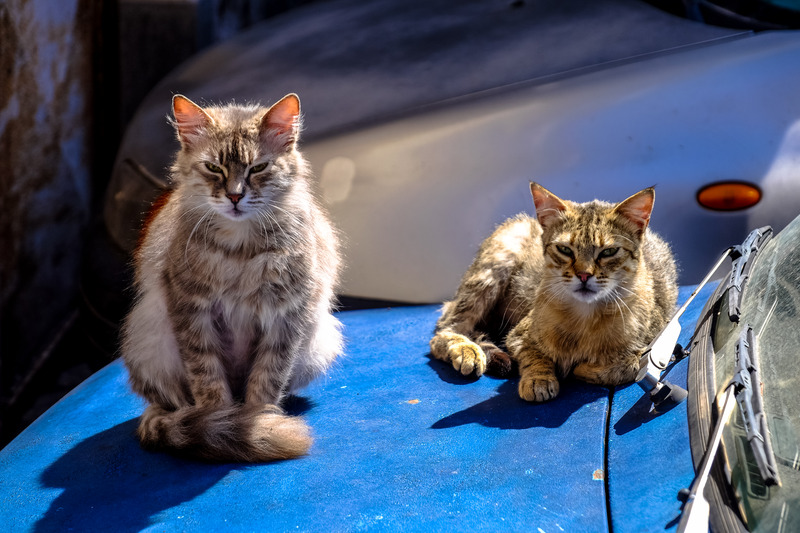
Mixed breed cats can expect to live up to 20 years when they are indoor cats, and only a little less for outdoor cats. When they survive entirely in the wild you can only expect them to reach about 5. Life expectancy for pure breeds and mixed breeds are just an estimate, but the majority of the record-breaking oldest cats are mixed breeds. The current holder of the record for longest-living cat is Crème Puff, a mixed breed tabby. Most mixed breeds live a good length of time, but it is harder to predict than a pure breed.
Types of Pure Breed and Mixed Breed
Whether you want a pure breed or a mixed breed cat, each category has subcategories. For pure breed cats, there are literally hundreds of different breeds. These all have fairly specific appearances depending on the breed. This is a stark contrast to mixed breed cats. Mixed breeds can come in a variety of colours, but the only real differences is their hair. They can be long-haired, medium-haired cats, and short-haired cats.
If you’re looking for a long-haired cat, these require the most work of all mixed breed cats. They are considerably higher maintenance. They will need extensive combing with a proper brush multiple times a week to keep their fur in good condition. If you neglect this, then you run the risk of matted hair. During warmer months, they shed like any other cat. This makes their long hair a particularly nasty thing to try and keep clean! You’re going to need a lot of lint rollers and a powerful hoover. These breeds are kind of high-maintenance so you should be prepared for this if you want a long-haired cat. Whether you’re bringing home a pure breed or a mixed breed cat, longhairs will require a lot of grooming.
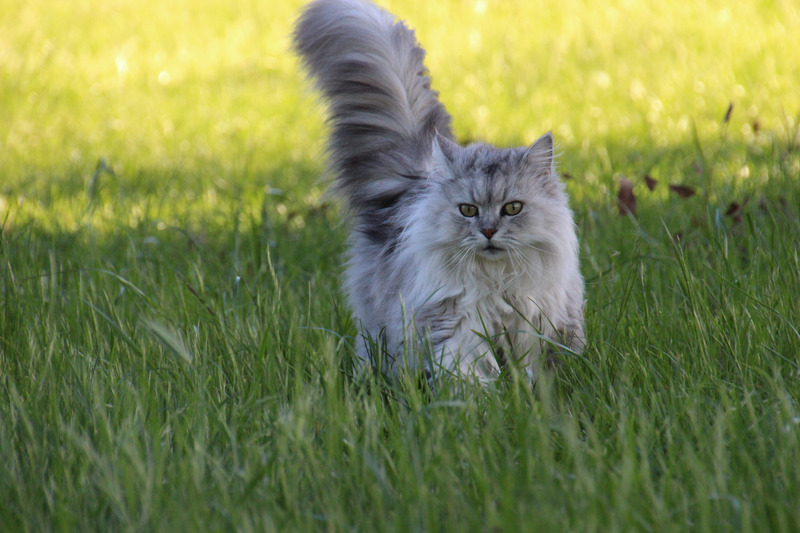
Medium-haired cats have fur that is soft and fluffy, it is thicker and longer than a shorthaired cat but has nowhere near the level of upkeep of a long-haired. A medium-haired cat can largely groom itself, but some combing on your part is required. If a medium-haired cat is demonstrating problems with their fur you will have to groom them more often. They are a nice middle ground between the other two options.
Shorthaired and Pure Breed Grooming Needs
Short-haired cats have particularly short coats. The fur of these cats will not grow much longer at all. Instead, it will shed nearly year round and particularly heavily in the summer. If you want a short haired cat, a good solution to this problem is to use a special glove. A grooming glove has a series of grooves on it, stroking your cat while wearing one will pull off any hair that is shedding or will soon fall off. You will probably be surprised at how much hair comes off of it!
Whether you’re getting a pure breed or mixed breed cat, they all have grooming needs. Pure breeds are a bit different. As you can tell from their diverse appearance, they are a lot harder to categorise than their mixed-breed alternatives. If you’re after a specific breed of cat, then you should do some brief research and familiarise yourself with the grooming requirements for that breed. Some can come with a lot of needs for their owners to fulfil. Equally, there are are some pure breeds like Devon Rexes that require very little grooming. You should asses their grooming needs on a breed by breed basis. As you might have gathered, pure breeds take a lot more research.
Temperament of Mixed Breed and Pure Breeds
Another factor that distinguishes pure breeds and mixed breed cats is their temperaments. While nothing is guaranteed with your cat’s personality and temperament, breed types give you a good indication of what you’re getting yourself in for. Environmental factors in how you raise your kitten will also play a big part. However, when considering if you should get a pure breed or mixed breed you can consider how predictable their temperament will be and if this matches your expectations.
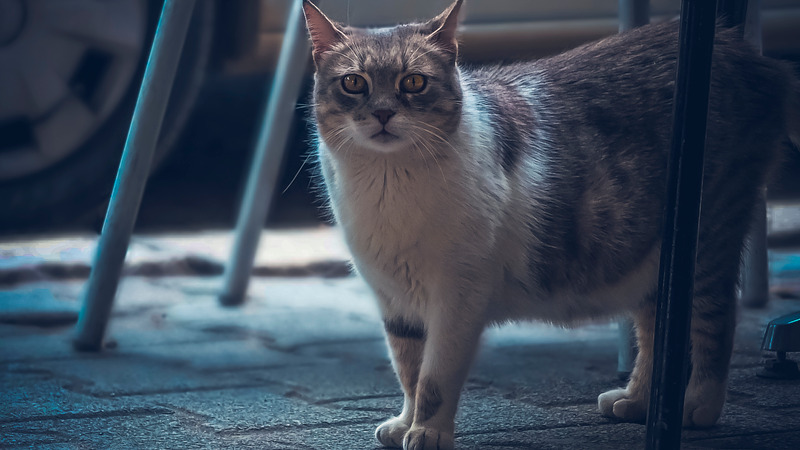
Mixed breed cats can have varying temperaments. They can literally be any sort of personality that a cat can have. You can raise a cat to have a certain personality, and socialisation forms a major part of their eventual behaviour. However, they are still a bit random compared to pure breeds. You can judge their temperament by meeting the kitten beforehand. Their temperament should be slightly visible, even as a kitten.
A pure breed cat’s temperament won’t be as random. Each breed of pure breed cat tends to have a personality that is specific to that breed. It’s more accurate to call this a range of personalities. Each cat is different, but specific breeds have characteristics that you’re more likely to find with that type of cat. Their personalities will vary, but the bulk will fall into this range of personalities that are associated with each breed.
Is a Pure Breed or Mixed Breed Right for You?
While there are pros and cons to each breed of cat, your preference is really the most important thing. If you’re not too interested in the appearance of the cat and just want one with some character to be a part of your home, a mixed breed is the better solution. You’ll have less control over their appearance, temperament, and even their lifespan, but they are considerably easier to care for and require a lot less research.
Pure breed cats will require a prospective owner to put some time into learning about the different breeds. While you might think one breed is stunning, their general temperament and grooming needs might not be suited for you. If you want to go for a pure breed cat, you should be certain that you’re willing and equipped to handle all of the specific needs of that breed, it’s a commitment that you’re signing yourself on for by getting that breed. Pure breed cats are for someone who is entirely certain of the exact type of cat that they want, and are willing to do the work associated with it.

